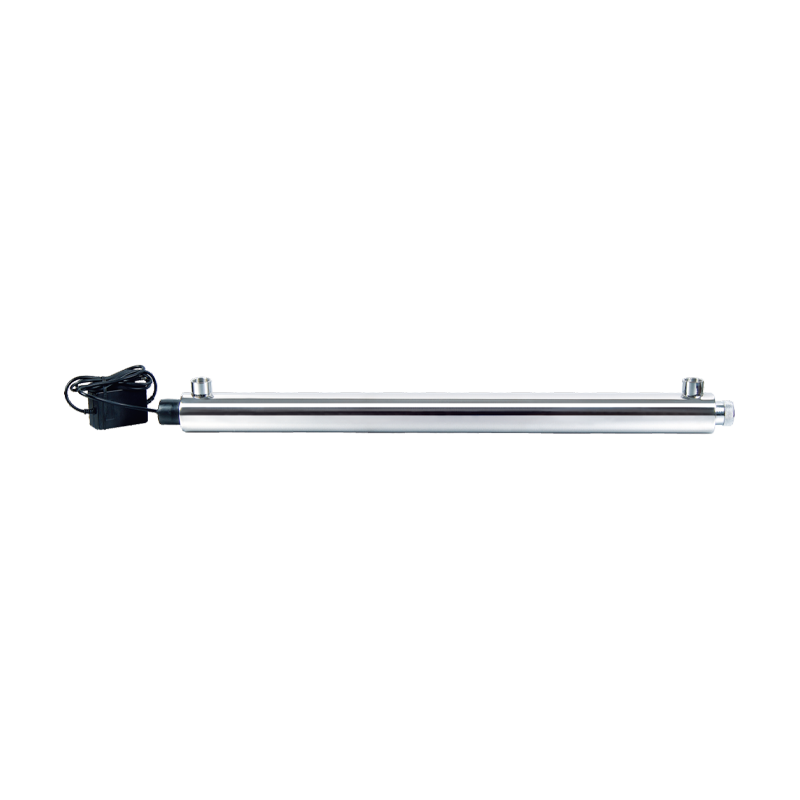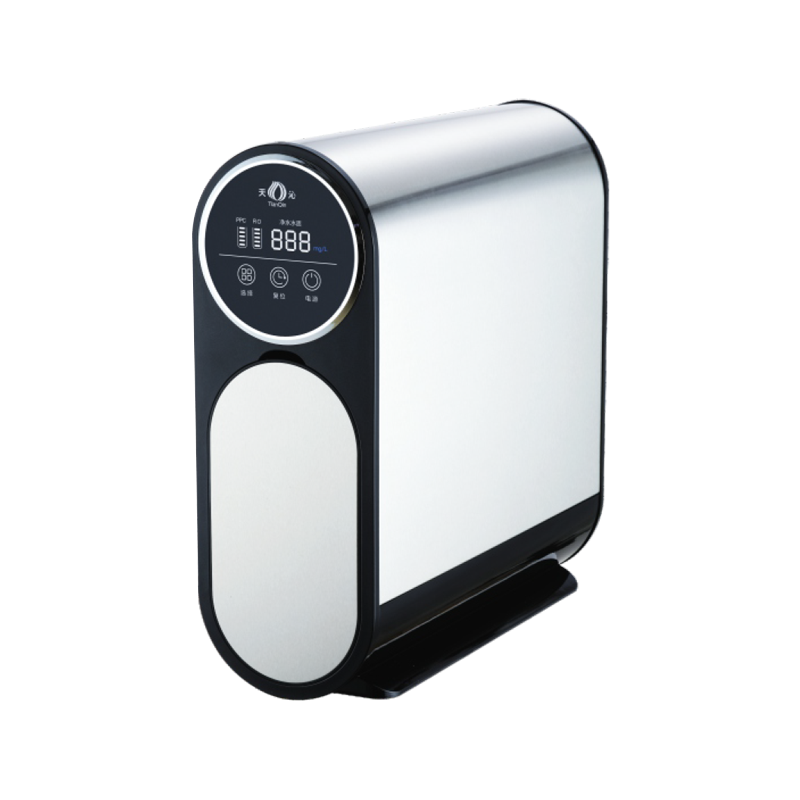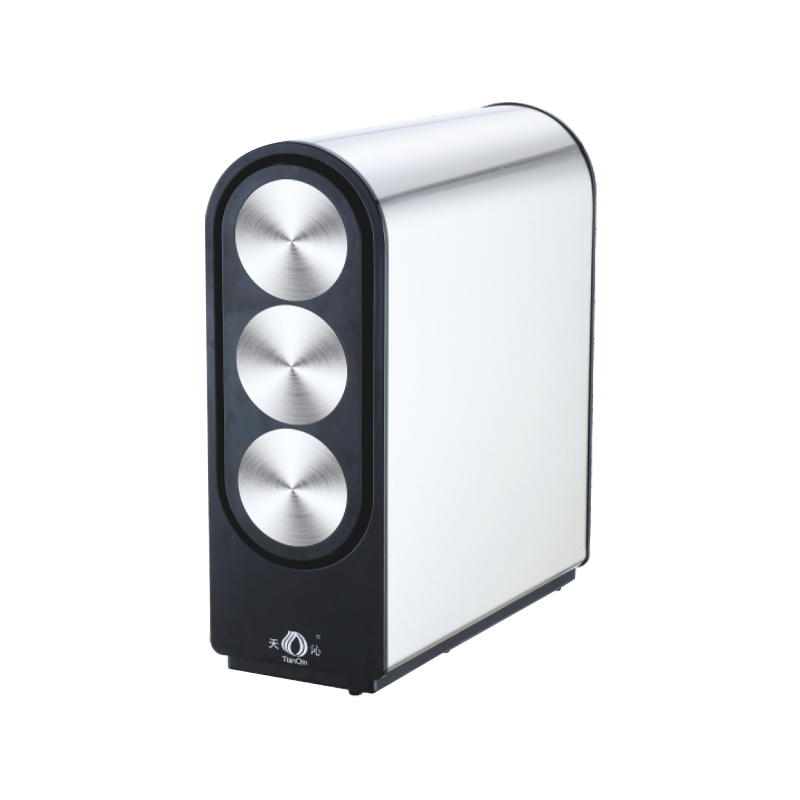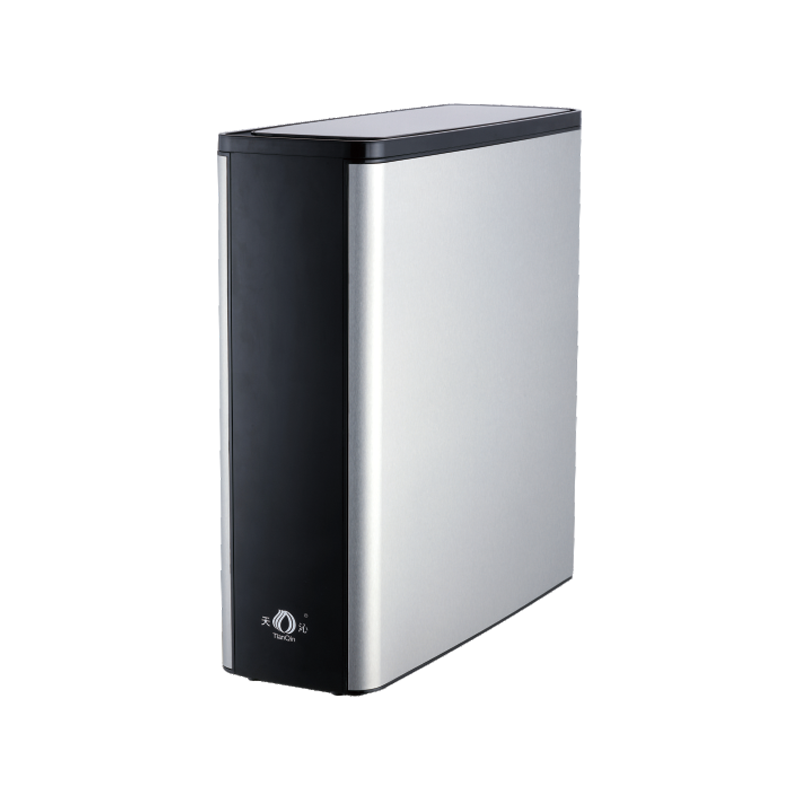-
 UV11W High-efficiency Intelligent UV Water Sterilizer Cat:Ultraviolet Water Sterilizer
UV11W High-efficiency Intelligent UV Water Sterilizer Cat:Ultraviolet Water SterilizerThe UV11W High-efficiency Intelligent UV Water Sterilizer is an advanced water purification system that offers convenience and reliability. This steri...
See Details -
 UV16W-A Household Stainless Steel UV Water Sterilizer Cat:Ultraviolet Water Sterilizer
UV16W-A Household Stainless Steel UV Water Sterilizer Cat:Ultraviolet Water SterilizerThe UV16W-A Household Stainless Steel UV Water Sterilizer is an innovative solution for ensuring safe and pure water in your home. Designed with durab...
See Details -
 UV16W-B 304 Stainless Steel Water Purifier Ultraviolet Water Sterilizer Cat:Ultraviolet Water Sterilizer
UV16W-B 304 Stainless Steel Water Purifier Ultraviolet Water Sterilizer Cat:Ultraviolet Water SterilizerUV16W-B 304 Stainless Steel Water Purifier Ultraviolet Water Sterilizer is an efficient water treatment equipment based on advanced ultraviolet disinf...
See Details -
 UV25W Stainless Steel Ultrafiltration Pre-Filtration UV Sterilizers For Water Cat:Ultraviolet Water Sterilizer
UV25W Stainless Steel Ultrafiltration Pre-Filtration UV Sterilizers For Water Cat:Ultraviolet Water SterilizerUV25W Stainless Steel Ultrafiltration Pre-Filtration UV Sterilizers For Water uses high-quality stainless steel materials, which have superb corrosion...
See Details -
 UV30W-55W Automatic Ultraviolet Sterilizer UV Filtration For Drinking Water Cat:Ultraviolet Water Sterilizer
UV30W-55W Automatic Ultraviolet Sterilizer UV Filtration For Drinking Water Cat:Ultraviolet Water SterilizerThe core advantage of UV30W-55W Automatic Ultraviolet Sterilizer UV Filtration For Drinking Water lies in its efficient and rapid disinfection capabil...
See Details -
 TQ-R03 Stainless Steel Booster Double Water Full Effect RO Water Purifier Cat:Stainless Steel Ro System
TQ-R03 Stainless Steel Booster Double Water Full Effect RO Water Purifier Cat:Stainless Steel Ro SystemTQ-R03 Stainless Steel Booster Double Water Full Effect RO Water Purifier is a household water purification device that combines efficient water purif...
See Details -
 TQ-R05 Multifunctional Water Purification Source RO Water Purifier Cat:Stainless Steel Ro System
TQ-R05 Multifunctional Water Purification Source RO Water Purifier Cat:Stainless Steel Ro SystemThe TQ-R05 Multifunctional Water Purification Source RO Water Purifier is an advanced, versatile water purification solution designed for households a...
See Details -
 TQ-R06 Stainless Steel Environmentally Friendly RO Water Purifier Cat:Stainless Steel Ro System
TQ-R06 Stainless Steel Environmentally Friendly RO Water Purifier Cat:Stainless Steel Ro SystemThe TQ-R06 Stainless Steel Environmentally Friendly RO Water Purifier combines advanced RO filtration technology, durable stainless steel housing, and...
See Details -
 Stainless Steel Pure Double Water Pipe Water Purifier Cat:Stainless Steel Pipeline Water Purifier
Stainless Steel Pure Double Water Pipe Water Purifier Cat:Stainless Steel Pipeline Water PurifierThe Stainless Steel Pure Double Water Pipe Water Purifier is an advanced water purification system designed to provide dual-mode purified water with e...
See Details -
 TQ-R08 Stainless Steel High-Flow RO Water Filter Cat:Stainless Steel Ro System
TQ-R08 Stainless Steel High-Flow RO Water Filter Cat:Stainless Steel Ro SystemThe Stainless Steel High-Flow RO Water Filter (TQ-R08) provides a powerful and effective solution for purifying drinking water, combining advanced rev...
See Details
Why has stainless steel water purifier become the new standard material for water purification equipment?
With water pollution becoming increasingly serious, more and more consumers are concerned about the safety and health of their drinking water. As an essential device in modern homes and businesses, stainless steel water purifiers have quickly become a new favorite in the water purification market due to their outstanding performance. Their outstanding advantages in corrosion resistance and antibacterial properties make stainless steel water purifiers more competitive in the market than water purifiers made of traditional materials.
Content
- 1 Corrosion Resistance of Stainless Steel Water Purifiers: Ensuring Water Quality Safety
- 2 Antimicrobial Properties of Stainless Steel Water Purifiers: Inhibiting Bacterial Growth
- 3 Corrosion and Antibacterial Advantages of Stainless Steel Water Purifiers Compared to Other Materials
- 4 Other Advantages of Stainless Steel Water Purifiers: Durability and Environmental Protection
Corrosion Resistance of Stainless Steel Water Purifiers: Ensuring Water Quality Safety
One of the common problems with long-term use of water purifiers is corrosion, especially in components that come into contact with water. During the water purification process, minerals, chemicals, and acidic and alkaline substances in the water can corrode the purifier's materials, affecting both performance and water quality. Stainless steel water purifiers stand out precisely because of their exceptional corrosion resistance.
The core advantage of stainless steel water purifiers lies in the passivation film formed on their surface. This film effectively isolates moisture, oxygen, and corrosive substances from the outside world, ensuring stability in humid, acidic, or alkaline environments. Compared to common materials like plastic and aluminum alloy, stainless steel is highly corrosion-resistant. Over extended use, it resists aging, deterioration, or the release of harmful substances due to the erosion of minerals or chemicals in the water. Whether using soft water, hard water, or water containing other impurities, stainless steel water purifiers ensure pure water quality and prevent secondary contamination.
In contrast, plastic water purifiers often age, crack, or even discolor over time, affecting not only their appearance but also water quality. Over time, bacteria and contaminants can easily accumulate on the plastic surface, affecting the water purification process and ultimately impurities.
| Description | E1 |
| L/H | 150 |
| Filter Cartridge | Ceramic filter element or other filter cartridges |
| Connector Type | 1/2" |
| Dimension | 10" |
| Package Dimension(cm) | 47×33×30 |
| Pieces/Box | 20 |
Antimicrobial Properties of Stainless Steel Water Purifiers: Inhibiting Bacterial Growth
The material of a water purifier must not only be corrosion-resistant but also antimicrobial. This is especially true when treating drinking water, where antimicrobial properties are directly related to the hygiene and safety of the water. Traditional plastic and aluminum alloy water purifiers have significant shortcomings in this regard. Their relatively rough surfaces easily harbor microorganisms such as bacteria and mold. Over time, these surfaces can grow, affecting water quality and potentially posing a threat to human health.
One of the greatest advantages of stainless steel water purifiers is their antimicrobial properties. The smooth and dense surface of stainless steel makes it difficult for bacteria and other microorganisms to attach. This physical property enables stainless steel water purifiers to effectively inhibit the growth of microorganisms such as bacteria, viruses, and mold in water, thereby ensuring the purity of the water source. Modern stainless steel water purifiers also utilize antimicrobial coatings or silver ion technology to further enhance their antimicrobial properties, making the water purification system even more hygienic.
In contrast, plastic water purifiers, due to their surface structure and material properties, easily harbor bacteria and multiply. Long-term use can cause microbial accumulation, which in turn affects water quality. Stainless steel water purifiers effectively avoid this problem, ensuring every drop of water is clean and safe.
Corrosion and Antibacterial Advantages of Stainless Steel Water Purifiers Compared to Other Materials
Comparison with Plastic Water Purifiers
Although plastic water purifiers are inexpensive and lightweight, their corrosion and antibacterial properties are far inferior to those of stainless steel. Over time, plastic is easily corroded by chemicals and minerals in the water, causing degradation, deformation, or cracking, ultimately affecting water purification effectiveness. Furthermore, plastic surfaces are often rough, making them susceptible to the growth of microorganisms such as bacteria and mold, causing secondary contamination and compromising water quality.
Compared to plastic, stainless steel water purifiers are not only more corrosion-resistant but also more antibacterial. Their smooth surface significantly reduces the chances of bacteria and mold attaching, significantly extending their service life. In the long run, stainless steel water purifiers are a healthier and more economical investment.
Comparison with Aluminum Alloy Water Purifiers
Although aluminum alloy water purifiers offer considerable strength and toughness, their corrosion resistance is far inferior to that of stainless steel. During the water treatment process, aluminum alloys easily react with acidic substances in the water, forming an oxide layer that damages the surface and contaminates the water. In contrast, stainless steel water purifiers, thanks to their corrosion resistance, operate stably under a wide range of water conditions, unaffected by external environmental influences.
Aluminum alloys are also far less antibacterial than stainless steel, making them susceptible to bacterial and microbial growth. These microorganisms can not only affect water purification effectiveness but also pose a health risk to users. Stainless steel water purifiers, with their natural antibacterial properties, effectively mitigate these health risks, ensuring safe water quality.
Other Advantages of Stainless Steel Water Purifiers: Durability and Environmental Protection
In addition to corrosion resistance and antibacterial properties, stainless steel water purifiers offer other significant advantages. First and foremost is their durability. Stainless steel's strength and toughness allow it to withstand long-term use without deformation or damage. It is also resistant to high and low temperatures and adapts to a variety of environments. In contrast, plastic and aluminum alloys are susceptible to heat, UV rays, and external forces, causing them to age and crack.
Stainless steel is a recyclable and environmentally friendly material, aligning with the current global concept of sustainable development. Compared to plastic water purifiers, stainless steel not only has a longer lifespan but is also recyclable and reusable, reducing environmental pollution. Plastic water purifiers, on the other hand, are often difficult to recycle and can easily become a source of environmental pollution.



 English
English 中文简体
中文简体




